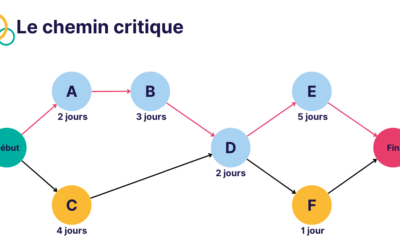Today, we are living in the digital era. In daily life, at work and at home, everything is organised, prepared, ordered in one click via your smartphone, tablet or computer.
In the same way as the industrial revolution profoundly changed 19th century society, the digital transformation is changing our current society and our relationship with work.
Some local authorities have understood this well and are already engaged in this digital revolution despite numerous obstacles (changing of mandates, budget constraints, etc.). Dematerialisation of documents, electronic signatures, mobility and remote working, tools and various applications or even Internet of Objects, discover how digital transformation is taking place in local authorities.
What is digital transformation?
To start, do you really know what digital transformation is?
According to 1min30, digital transformation refers to the process of an organization fully integrating digital technologies in all of its activities.
Local authorities, like businesses, progressively integrate new technologies like dematerialisation, Internet of Objects or mobility, and change their way of working by focusing on digitalisation and collaboration. All this is in the aim of simplifying citizens’ lives, to respond better to their needs and demands, to facilitate the daily work of agents, to gain efficiency, but also to improve the attractiveness of the territories.
In 2018, a large number of authorities embarked on this digital transformation to make it one of the priority axes of their development.
Digital Transformation within authorities
Here is how digital transformation is put in place within local authorities.
The modernisation of work tools
Digital transformation means you have to equip teams and agents with adapted tools in order to offer them high performing work conditions, in line with the new challenges they are confronted with.
These new digital tools should allow officials to better fulfil their missions and to satisfy users whose expectations have also changed.
To promote the digitalisation of services, you should :
- equip teams and agents who need them with tablets and computers;
- put instant messaging and video conference systems in place to facilitate communication between teams, but also with different partners;
- make files and documents easily accessible to all by storing them in one place
To facilitate officials’ work, there now exists a number of collaborative software platforms which are available on the market. Online document sharing tools like Wimi or Wimi Armoured are particularly adapted to local authorities because as well as offering all of the essential aspects (messaging, videoconference, document storage, calendar, etc.), they guarantee protection and security of data by hosting it in France. A condition that became mandatory after the April 2016 circular concerning the use of a sovereign cloud.
The development of collaborative work
Your digital transformation has not been successful just because your agents are equipped with tablets. It’s a little more complicated than that.
The digital revolution is going through a cultural change by the evolution of the way of operating. Authorities need to change their way of working and adopt collaborative work.
From now on, teams can no longer work each on their own. It is necessary to put a crossover in place between teams so that different employees communicate and collaborate between each other in the aim of guaranteeing the success of projects and proposing effective solutions to the problems and needs of citizens.
In this way, to encourage the breaking down of barriers between teams and facilitate collaborative work within authorities, you should:
- create an environment conducive to collaboration with, in particular, the establishment of open spaces to facilitate communication and exchanges between teams
- clearly define the roles and responsibilities of each person in this new organization
- promote the transparency and accountability of teams
- develop a team spirit and confidence between collaborators
- use adequate tools
Implementing change management
It is a fact: change worries people and causes negative reactions such as fear, opposition, resistance, etc. Many teams are at risk of feeling overwhelmed facing the new challengers of the digital revolution. To prevent them firmly opposing, you should help them, accompany them and give them ways of getting to grips with this digital transformation.
Change management is essential to make the transformation succeed. For this, a number of solutions are on offer:
- training for the new work methods and tools ;
- the creation of communication support ;
- putting in place a point of contact to reassure and respond to agents’ questions
Conclusion
The digital revolution should not be seen as a risk for authorities, but as an opportunity. Digital tools notably allow for saving time and simplifying the work of agents in the public sector. However, this transformation involved a cultural and behavioural evolution which forces authorities to rethink their ways of working and their managerial practices.









